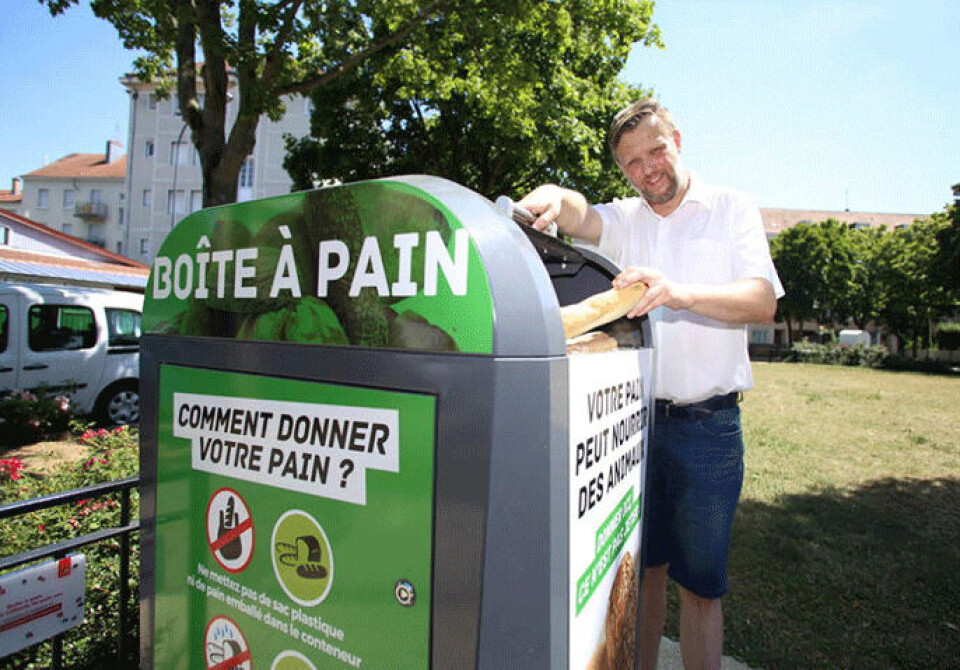-
Police across France hunt abandoned cars to free up spaces in urban areas
Vehicles cannot be parked on a public road in the same place for more than seven days
-
Senators examine proposal to guarantee access to cash machines in rural areas of France
Some 18.6% of French communes had access to at least one local ATM in 2024
-
French weekly weather forecast February 9-13: Unsettled with winds of up to 100km/h
Flood risk may increase in several regions and mountain conditions set to worsen
French town collects stale bread to make energy and fertiliser
Residents complained that people were using leftover bread to feed the birds, attracting rats, so they came up with a solution

Residents in one neighbourhood have come up with a new way to reduce food waste – they collect their stale bread in dedicated bins and it is then used to create energy and fertiliser.
Locals drop their leftover bread into one of four bins near their homes in Mulhouse, eastern France. It is collected and used, via a process of anaerobic digestion, to create gas, electricity and fertiliser.
The idea originated from a conseil participatif (citizens’ assembly) in the Manufactures neighbourhood after locals noticed people throwing their stale bread to animals in the park, attracting rats and coypu.
When the bins launched in July, the bread was initially distributed to a farmer and used to feed his animals but this proved difficult to manage.
Deputy mayor of Mulhouse Florian Colom said: “There was quite a strict sorting phase. Only a third went to the farmer and it required a lot of time.
“Now, we can process a larger quantity and only need to check there are no plastic bags. Before, mouldy bread was not kept but now we use all the bread.”
Read more: US firm to build hard to treat plastic recycling plant in France
The need for efficiency is a result of demand. By mid-September, 6,600 litres of bread had been collected and local authorities are emptying the bins twice a week, instead of once, as originally planned.
We have entire baguettes that haven’t been touched
The success has also shown the extent of food waste. “We have entire baguettes that haven’t been touched,” Mr Colom said.
Read more: Supermarkets in France offer anti-waste measures to help shoppers save
David Malas, the conseil participatif’s point of contact, said he was surprised by the bins’ popularity. Now other neighbourhoods want part of the action. “Everybody wants their famous bread bin,” he said.
Mr Colom said that while the current focus is on perfecting the existing system, the town has talked to the food-processing industry about potentially scaling up. “They have the capacity to extract sugar from the bread and reuse it.
“If other places want to do this, we’re happy to discuss how it’s working out.”
As for the city’s birds, “rest assured, there will always be a little nan or grandad to come and throw them bread”, Mr Malas said. “We still have plenty of birds in Mulhouse.”
Related links
How to recycle in France: Seven common questions answered
French MP proposes allowing used cooking oil to be legal car fuel
























